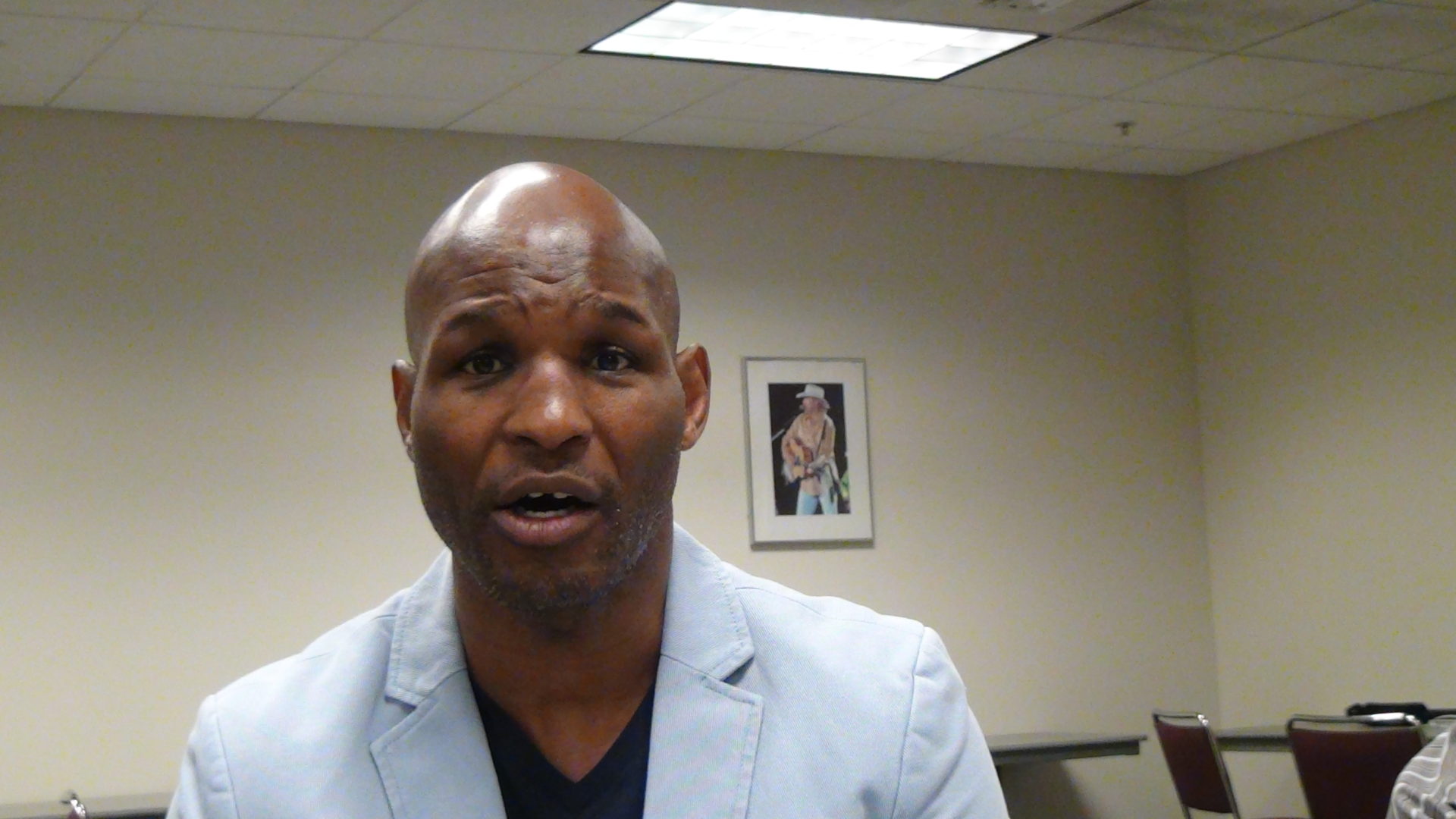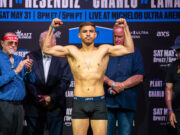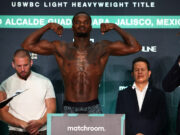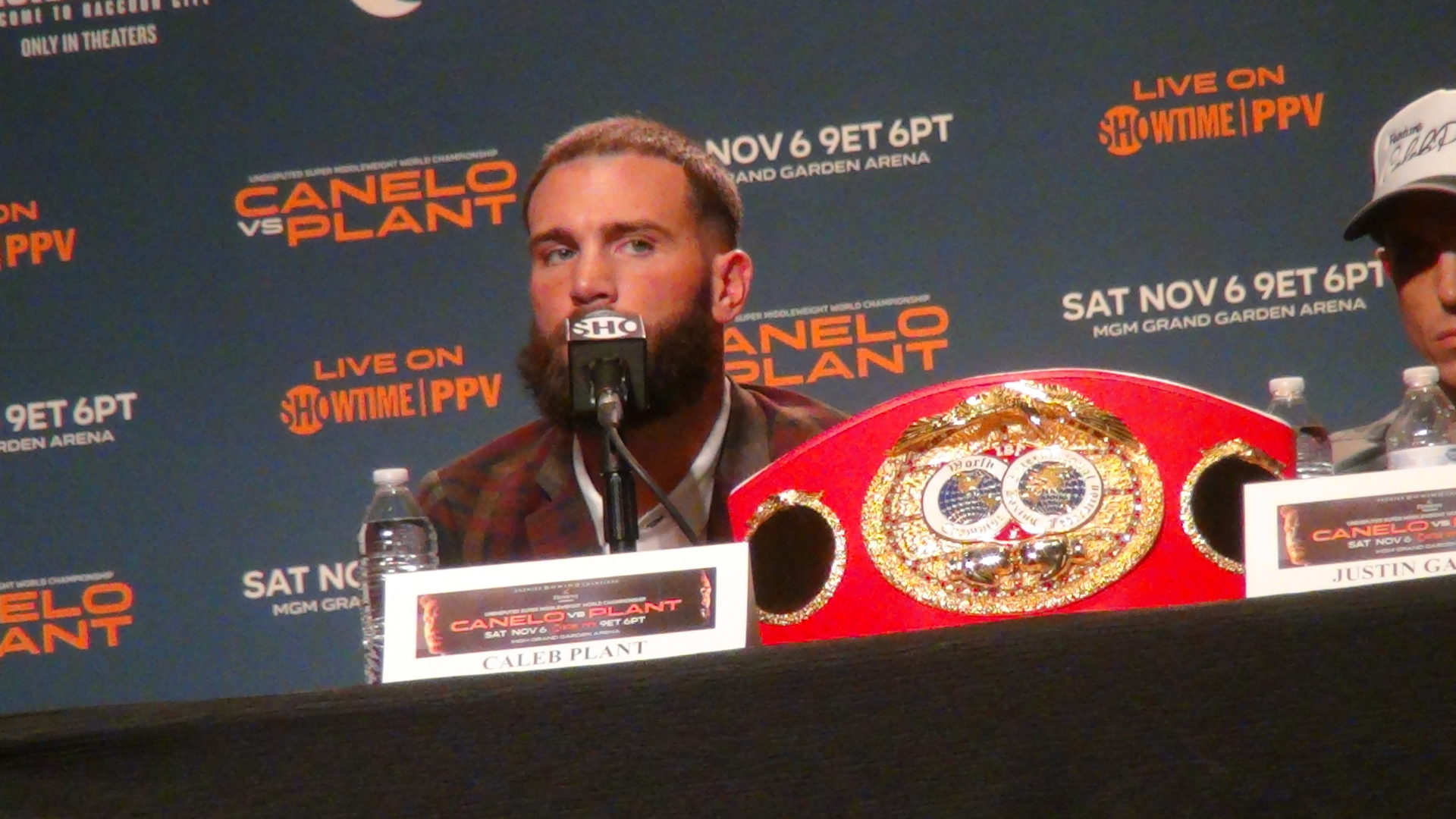By Bart Barry–

SAN MARCOS, Texas – Three miles southwest of Texas State University is a mostly waterless stretch of terrain called Purgatory Creek Natural Area, a verdant place complete with trails named after Dante, Ripheus, Ovid and Beatrice, for those with an Italian literary bent.
Saturday at Boardwalk Hall in the American purgatory of Atlantic City, light heavyweight Bernard Hopkins and Russian Sergey Kovalev will make the most meaningful fight of 2014.
The above sentences are related, though how they are will not be apparent for a while to come.
What also may come is the day boxing makes a concerted – in the sense of coordinated – attempt to win back what fans it lost in the first half of the second decade of this 21st century, a time of fan exodus that began in the early weeks of 2010, the first time the world’s best and second-best practitioners refused to make a contest with one another despite occupying the same weightclass. A day of fans’ collective return to our sport, however, is of no consequence right now because boxing faces a nigh existential crisis this year of aficionado departures.
The casual fans are long gone, shuffling steadily if quietly away under a rainstorm of “good riddance!” from purists who didn’t know any better, and the consequences of their departure and ways they will be missed is not entirely knowable yet but guessable certainly. To indulge a hunt for those consequences, though, is an indulgence indeed in 2014 – the year our sport became so easy to abandon. This is not a crisis that will find remedy from a new television deal or browbeating about boxing’s redounding popularity in Dublin and Dubai and Dunkirk and Dongguan; boxing gyms are empty in all but a few cities in the U.S., a country that once dominated the sport and now anxiously hopes its next Olympic gold medal comes only a dozen years after its last.
This crisis finds illustration of the most ambiguous sort on Saturday, when a 175-pound American who is months from his 50th birthday makes a title-unification match with a talented Russian who is 31 years-old but still young enough to be his opponent’s son.
About a year ago, Sergey Kovalev’s first American trainer, Don Turner, said the difference between Kovalev and Hopkins was the Russian is “mean” where the American is “cunning.” Whatever the efforts at image revision – Snuggly Sergey Bedside with Wife / Speedbag Sergey Ringside with HBO – Kovalev remains the only prizefighter anyone can remember increasing his knockout percentage after causing another man’s death in a boxing ring. He smiles so much in interviews because he’s been told to do so, and because he hasn’t more than a kindergartner’s grasp of English, and because he doesn’t care what you are asking anyway. In a sport comprising exclusively men willing to hurt another man for a paycheck, there’s a good argument to be made Kovalev is the exact last man you’d wish to meet in the dark alley of badness’ proverbs.
And yet, Bernard Hopkins, a man willing to give a safety-first effort to the unlikeliest opponents, initiated a match with Kovalev, at the very moment it appeared Hopkins might have made the same dollars fighting the more limited, if possibly insane, Haitian titlist Adonis Stevenson. In an era of men burnishing their credentials as Most Avoided by avoiding bigger men, Hopkins rushes at them, men like Antonio Tarver, Chad Dawson and Kovalev, all considerably larger on their 30th birthdays than Hopkins was in 1995.
While ever a delight to himself, Hopkins is a blossoming embarrassment for most of his prizefighting countrymen, showing at age 49 a willingness to fail, and be badly injured, few of today’s best American fighters have shown since their bouts got computer-matched in the amateurs. Hopkins is not charming as he thinks he is, nor eloquent, but his willingness to fail in speech – giving answers unknowable to their questions, being open and vulnerable in ways he later pretends were calculated – when married to his extraordinary courage and self-belief, makes him uniquely heroic.
He is uniquely present in a prizefighting ring, too, and this is why he came to mind during a hike along Dante’s rocky Purgatory Creek trail. Undulating coffee-dark paths covered in bleached stones and white shards of much larger bleached stones are unpleasant for any who traverse them but particularly unpleasant for those obdurate enough to traverse them in “barefoot” attire – thin rubber soles and mesh. There’s a trick to it, though: If one concentrates on solely two things as he marches, breathing through his nose and looking no more than a yard before him, accelerating till anxiety and doubt haven’t time nor room, he is able to navigate nearly any surface quickly and painlessly.
It’s a mental-alignment exercise that surpasses self-belief and approaches faith; when the mind’s processor has unfettered access to the input of its eyes and the output and input of its feet, when decisions are rendered so fast they mimic reactions, when every algorithm is executed instantly and its result immediately then forgotten, one is able to move with astounding rapidity and never misstep. (This breathing trick works at excessive speeds in traffic, too, but you didn’t read that here.) It mimics a state athletes often, and often erroneously, call “the zone” because its results surpass what workaday feats can be accomplished with mere concentration – it is instead a form of mindlessness leavened by wisdom enough to keep the mind out its own way.
Hopkins finds this place and disrupts others’ pursuits of it. His reflexes are absurdly well-preserved, yes, but the access he grants himself to a mental database of other men’s physical patterns permits him to find matches so quickly, and unman others so fully, it approaches clairvoyance.
Fatigue can undermine Hopkins’ sense of presence like any other man’s, though, and fatiguing Hopkins is Kovalev’s best chance of winning Saturday. If Kovalev has trained for a 30-round fight and is willing to hit Hopkins anywhere at all a hundred times every round, without discouragement, Kovalev should win. Otherwise, Bernard Hopkins will be Fighter of the Decade, 2010-2020.
Bart Barry can be reached via Twitter @bartbarry























